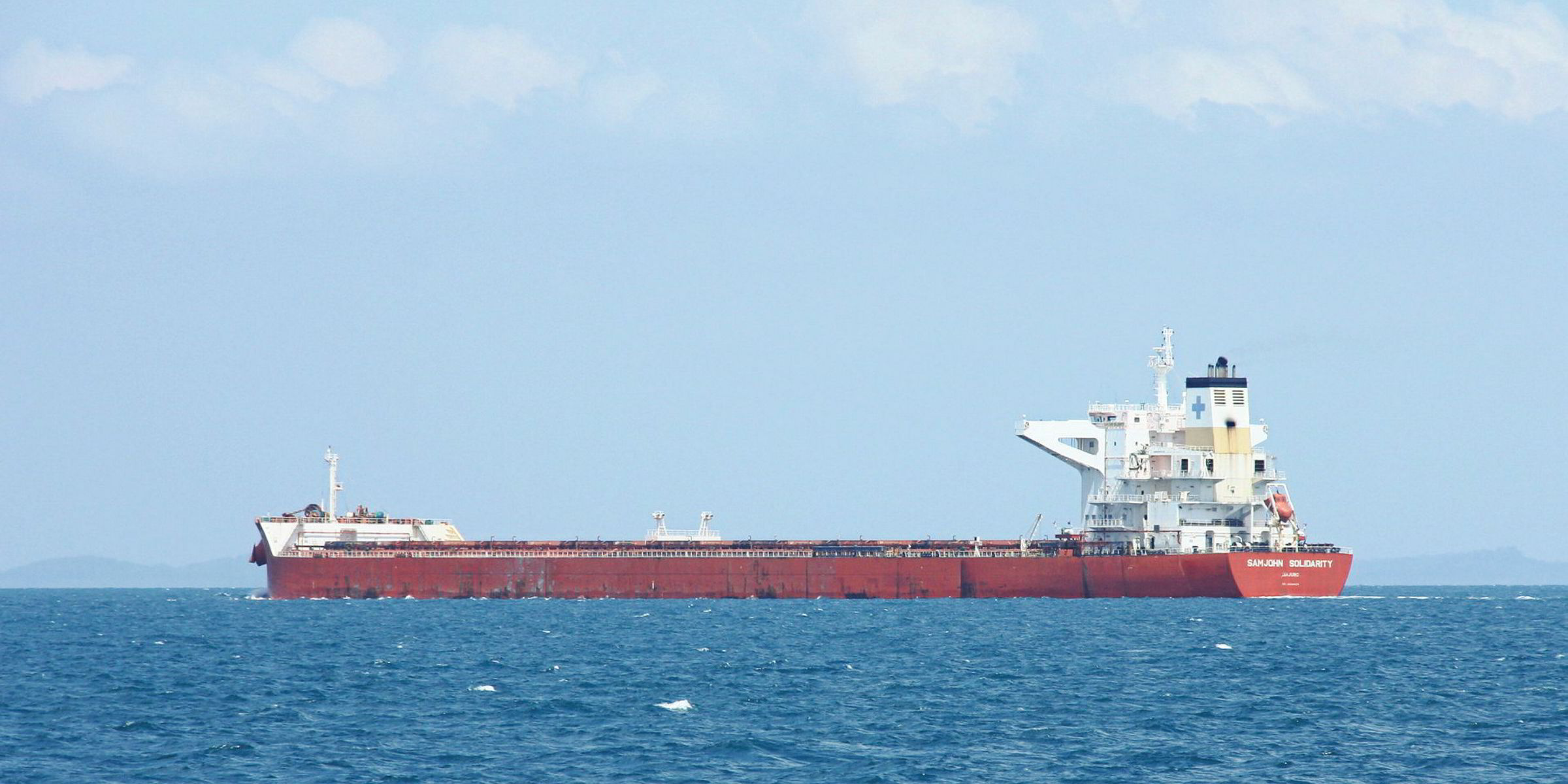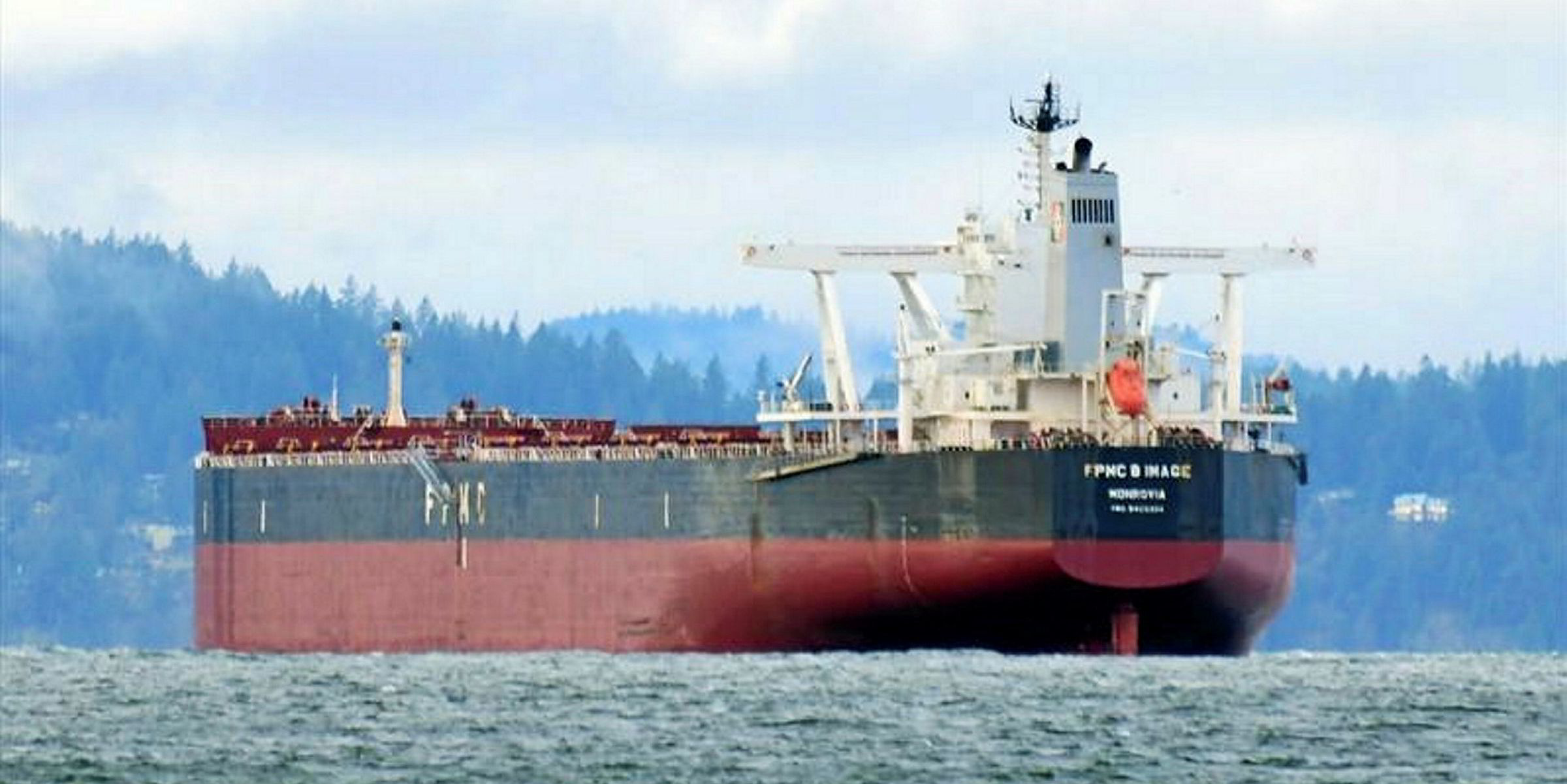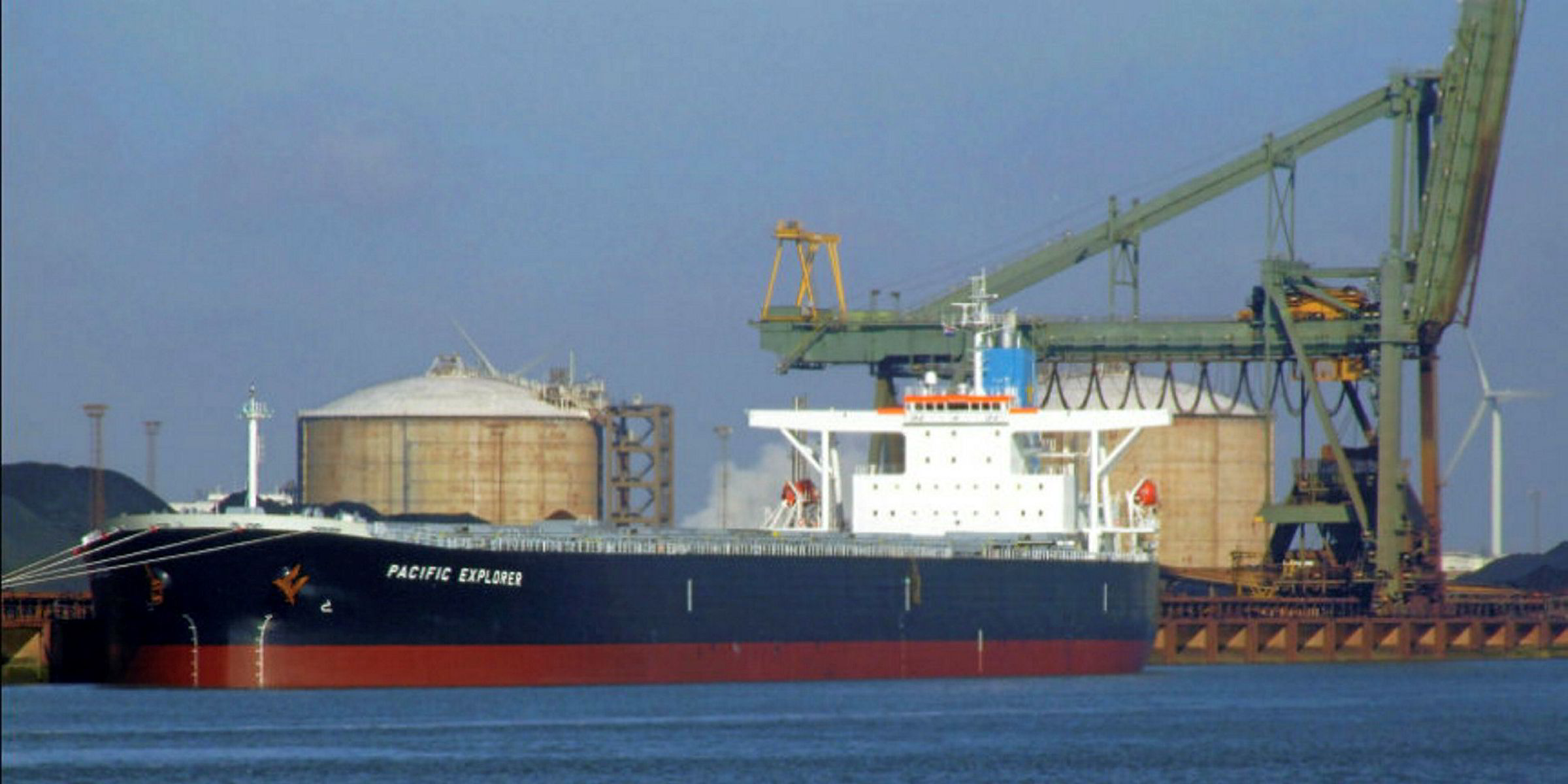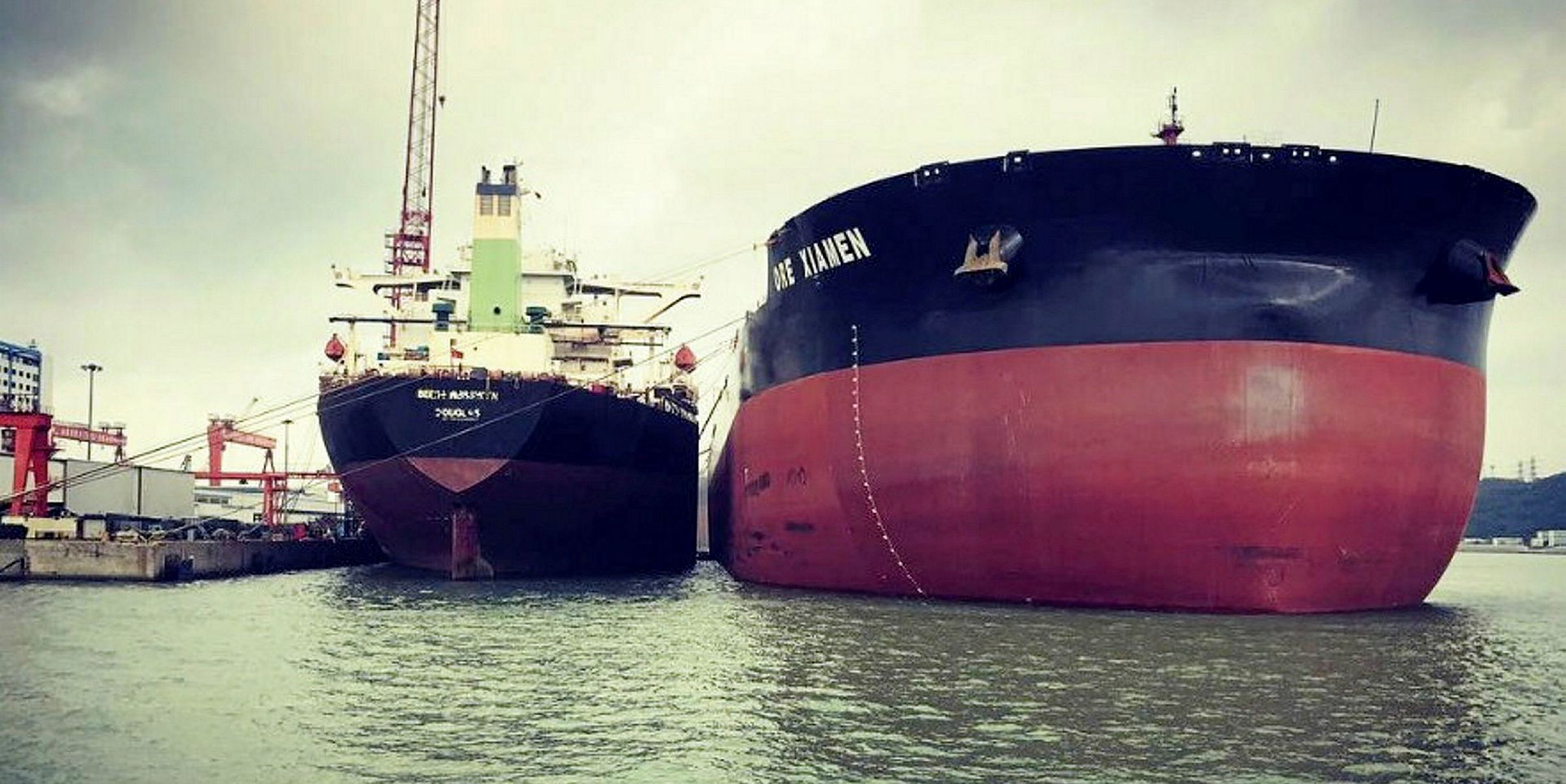Exhaust gas scrubbers have apparently given rise to a "Tale of Two Ships" in the capesize sector.
A two-tier freight market has emerged since IMO 2020 came into play on 1 January, as ships with the kits are fetching a premium to those without them.
Scrubber-fitted capes are earning $13,900 per day on a weighted time-charter average, according to brokers, while their kitless counterparts are bringing in $5,900 per day.
"Capesizes without scrubbers are closing in at opex [operating expenditure] levels while vessels with scrubbers are...broadly at cash breakeven," Clarkson Platou Securities analyst Frode Mordekal said.
"The question is which vessel class is driving rates these days."
The Baltic Exchange assessed operating expenditure for capesize vessels not fitted with scrubbers at $5,026 per day on 16 January.
"Questions are being asked what sort of a floor can the market now expect as scrubber-fitted vessels are earning above opex while standard vessels are flirting with negative time-charter equivalents on some voyages," the Baltic Exchange said in its daily market report on Wednesday.
Mordekal said that capesize rates on the benchmark Brazil-China route, where scrubber-fitted tonnage can account for 60% of the ships at times, may keep falling as most shipowners there can tolerate lower returns.
On the other hand, the forward freight agreement market remains stable and is pricing in a recovery ahead, Mordekal said.
"Seasonally, activity is at its lowest in February during the Chinese New Year and activity thereafter usually picks up, normally leading to higher rates," he added.
Slow steaming and more scrapping should offer support to freight earnings, but a recovery in vessel demand may not surface before steel prices in China pick up, he said.
Dry markets sink again
Recent weakness in the capesize market has caused the Baltic Dry Index (BDI) to fall to a near four-year low on Thursday.
The BDI dropped by 47 points, or 8%, from Wednesday's level to reach 576 points, its lowest assessment since 13 April 2016.
For capesize vessels, the weighted time-charter average fell by 14% to $5,071 per day on the Baltic Exchange. This is around 65% lower than the month-ago level.
Slow fixtures of iron ore shipments on the main routes hurt market sentiment. Only four iron ore spot fixtures were reported on Wednesday.
Three of the voyages were bound for Qingdao, China from Brazil, Western Australia and South Africa respectively for major mining charterers.
The other reported voyage was a rare iron ore trip from Richards Bay in South Africa to Gangavaram, India for South Korean industrial group Daelim.







